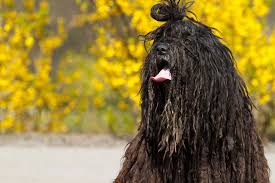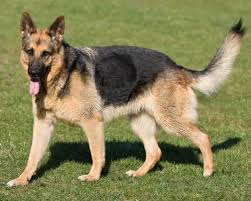What happens if a dog eats whipped cream? While the whipped cream itself may not be toxic, it is very common for dogs to be lactose intolerant. Eating things like whipped cream or ice cream in excess can lead to symptoms like gas, bloating, constipation, diarrhea, or vomiting.
Is Reddi Whip OK for dogs? Whipped toppings, like Cool Whip or Reddi-wip, include ingredients to preserve the sensitive cream longer than a trip from your kitchen to the kitchen table. But there shouldn’t be anything necessarily toxic for dogs in these whipped toppings.
Is Puppuccino safe for dogs? Here’s the brief answer: a Starbucks Puppuccino is a tiny espresso size cup with whipped cream made specifically for our four-legged, furry companions. Milk products, including whipped cream, in small quantities are perfectly safe for most dogs once in a while.
What kind of dogs can eat whipped cream? Yes, as long as your dog is not allergic to dairy or lactose intolerant, they can have fresh whipped cream. You should also pay close attention to how much sugar they ate that day too. It’s best to give your dog treats that don’t have added sugar.
What happens if a dog eats whipped cream? – Additional Questions
Why do dogs like whipped cream so much?
For dogs that enjoy its sweet and fatty taste and airy texture, we recommend using it as an occasional treat for good behavior. Because many dogs are highly food-motivated, whipped cream can be a valuable tool for training and reinforcing commands.
What is a Puppuccino made of?
Puppuccinos are a popular Starbuck’s secret menu item. It’s simply a small espresso cup filled with whipped cream made specifically for your dog. Don’t worry, there isn’t any espresso, coffee, or tea in this treat.
Can Shih Tzu have whipped cream?
In fact, despite its poor nutritional content, whipping cream is not completely harmful to dogs since it is not poisonous in the same way that chocolate or grapes are. Whipped cream is completely safe for dogs to consume. As a result, it can be offered as a special treat on occasion.
What dogs shouldnt eat?
10 Foods Your Dog Should Never Eat
- Chocolate. Chocolate contains a very toxic substance called methylxanthines, which are stimulants that can stop a dog’s metabolic process.
- Avocados.
- Onions and Garlic.
- Grapes and Raisins.
- Milk and other Dairy Products.
- Macadamia Nuts.
- Sugary foods and drinks.
- Caffeine.
Is cream OK for dogs?
The ASPCA recommends that, along with all other dairy products, you keep both milk and cream away from your precious pet’s palate, no matter how much she begs. Since dogs don’t have high levels of the enzyme lactase, lactose deconstruction is usually very difficult for them, leading to unpleasant digestive issues.
Are Puppuccinos free at Starbucks?
What is the Cost of a Starbucks Puppuccino? A Puppuccino is free! We always order a Puppuccino with a paid item but, if you’re just coming by for a Starbucks dog treat only, be sure to tip your server!
How do you make Puppuccino?
How Do You Order a Puppuccino? This is one menu item you can’t order through your Starbucks app—just tell your barista you have your dog along for the ride and they would very much like a Puppuccino (or a pup cup, or just a small cup of whipped cream). They’ll know exactly what you’re talking about.
How often can a dog have a Puppuccino?
Bullen said. In other words, don’t just give a huge cup of whipped cream to your dog if she’s never had it before. And definitely don’t give it to her every day. Puppuccinos should be considered an occasional treat — like a reward for being such a good girl at the groomer that month.
What is a Puppuccino cost?
How much do Puppuccinos cost? Puppuccinos are free! Yup, that’s right, your dog can enjoy a delicious puppuccino for no cost at all, which is good since my dog has no money. I always ask for one when I’m ordering my own Starbucks drink.
Does Starbucks have a dog menu?
The INSIDER Summary: Starbucks has a secret menu item just for dogs. It’s called the “puppuccino” and is an espresso cup filled with whipped cream. Next time you make a Starbucks run, consider bringing your furry friend.
Can dogs drink milk?
Milk is a safe treat in small quantities. A few tablespoons of cow’s milk or goat’s milk on an occasional basis can be a nice reward for your dog. But, you should probably hold off on offering your dog an entire bowl in one sitting, as it can cause unpleasant reactions, including diarrhea, vomiting, and loose stools.
Can dogs eat popcorn?
Plain, air-popped popcorn is safe for dogs to eat in small quantities. Buttered popcorn or popcorn with other toppings is not safe for your dog on a regular basis, although eating a few dropped pieces here and there probably won’t hurt him.
Is cheese bad for dogs?
While cheese can be safe to feed to your dog, there are some things to remember. Cheese is high in fat, and feeding too much to your dog regularly can cause weight gain and lead to obesity. Even more problematic, it could lead to pancreatitis, a serious and potentially fatal illness in dogs.
Can dogs eat cheese?
According to the ASPCA, “because pets do not possess significant amounts of lactase (the enzyme that breaks down lactose in milk), milk and other dairy-based products cause them diarrhea or other digestive upset.” The takeaway: Don’t give your dog cheese as part of their regular meal plan or as a frequent treat.
Can dogs eat pizza?
The bottom line is that you should never give pizza to your dog, whether as a meal or a treat. They might experience a slight stomach upset if they’re sensitive to dairy, due to the excess fat, but overall in many cases dogs are fine.
Can dogs eat pasta?
Dogs can eat plain white rice or pasta after it’s cooked. And, a serving of plain white rice with some boiled chicken can sometimes make your dog feel better when they are having stomach problems.
Is bread bad for dogs?
The short answer to the question “can dogs eat bread?” is yes. Dogs can safely eat bread in much the same way as humans—in moderation. Plain white and wheat bread are generally safe for dogs to eat, provided they don’t have any allergies, and it usually does not cause any stomach upset.




